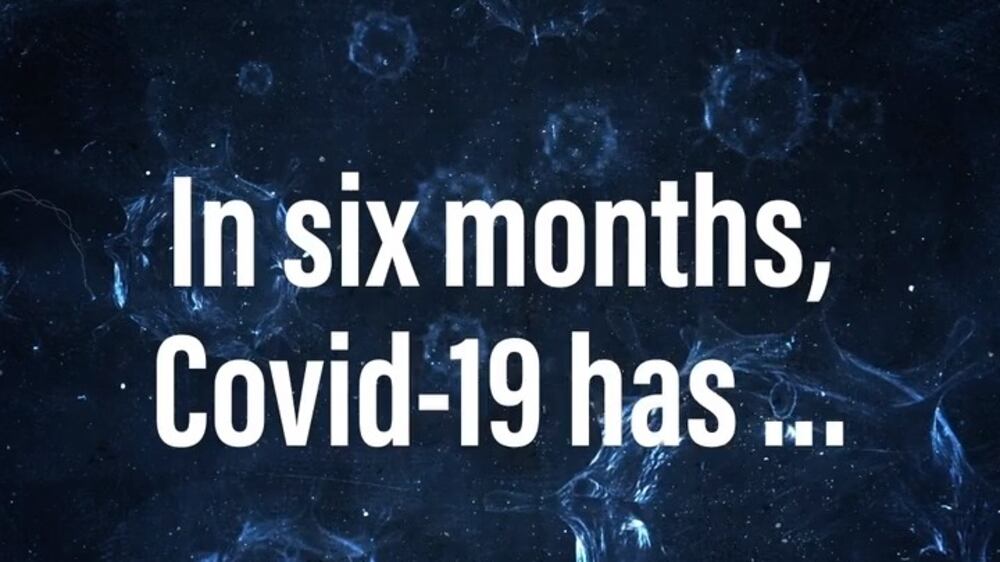It was about six months ago that the first coronavirus case was reported in China on December 31.
Since then, the virus has spread around the globe, transformed into a pandemic and changed life as we know it. It has been a truly extraordinary time, and everyone has been affected.
As cities begin to reopen and life slowly returns to a "new normal", we hear from 20 influential and creative voices from across the region, each sharing the biggest lessons they have learnt over the past six months.
1. Zaki Nusseibeh, UAE Minister of State
“What this pandemic has shown the world is that the only effective means of facing a global threat is through global co-operation.”
2. Sultan Al Qassemi, founder of Sharjah’s Barjeel Art Foundation, and academic
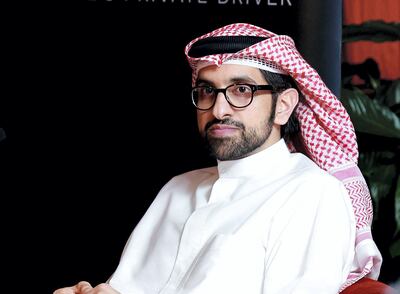
"I learnt how fragile we are as human beings. We have learnt to identify what's valuable in our lives. We definitely undervalued health and we underappreciated how fragile our bodies are to something like this.
I haven't been outside in 101 days, and I don't go out because I live with my Mum and I can't afford to have anything bad happen to her because of me, so I stay indoors.
Usually I surround myself with dozens of people, I didn't ever think I could live without having so many people. I've enjoyed my afternoon walks in the garden, learnt so much more about plants and fauna in the UAE, worked on my book, spent time with my Mum and I realised I could actually spend more time on my own than I thought I could. However, technology played an important part in that.
More generally speaking, I think we have learnt about a lack of global leadership and it's the smaller countries that have stepped up, like the UAE. And also countries that are led by women have been so successful, this was a chance to showcase that [to the] people who doubted the leadership of women in times of crisis."
3. Maya Allison, chief curator and executive director, NYU Abu Dhabi Art Gallery
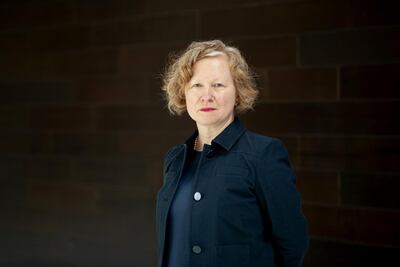
“I look back with a mixture of emotions at the world’s mental state in each phase of this pandemic: our mass incredulity, not accepting its reality, stunned as the first few weeks of remote working felt like an extended snow day (or, as we have in Abu Dhabi, rain day).
Then: people learn how hard it is to teach their own children (respect: teachers!), home-baked bread sweeps Instagram, entire museums go online, entire teams get laid off … home workouts, Zoom backgrounds… the emotional fatigue, the brain fog, the grief.
And then the pure terror sets in – for our survival, for that of my family back in the US, wondering when / if I will ever see them again, seeing my friends lose their friends and family.
Isolation. Zoom fatigue. Gratitude for what we have. And, always, the existential questions: what really matters? How do I understand my life as meaningful, in the face of all of this? And, I feel the preciousness of art more keenly than ever.
There will not be a normal like there was before, will there? Could that be a good thing? Yes, if we learn from this, and choose well. We see now that the world can change, in a matter of weeks – for better, or for worse. What we do, moment to moment, matters.”
4. Omar Ghobash, Assistant Minister for Culture and Public Diplomacy, and author
"Covid has taught me the importance of staying still, the value of not travelling and the value of time spent at home with family. It's something I hadn’t done in years."
5. Nezar Andary, filmmaker and associate professor, Zayed University
"I do not yearn for our prior 'normal.' Let us reevaluate what we valued. Reading a poem, Nazik Al-Malaika's Cholera, I learnt we need more silence. I discovered the agricultural richness of the UAE – local farms can feed us more. Albert Camus' The Plague returned as a bestselling novel. While its poignant prose teaches us the importance of common decency, the novel blatantly ignores and dehumanises Arabs/Africans, reminding us of the intransigence of structural violence. Yes, the implacable violence of imperialism/racism still afflicts us.
Studying Samuel Beckett, my son, Layl Andary, pushed me to question human perception and to 'try again, fail, and fail better.' Abandoning my smartphone while walking our dog; the birds and trees of Abu Dhabi animate me more. My relationship to the territorial myna bird is a new form of politics. Dislocations, deficiencies, contradictions, vulnerabilities abound. I have much more to learn."
6. Reif Othman, chef and founder of Reif Japanese Kushiyaki restaurant
“The past six months have been a humbling experience for me. They have taught me that adapting and adjusting to current situations is the key to survival. It is important to stay positive and not let the negative pressure change who I am as a person. There is always a silver lining at the end.”
7. Raya Al Jadir, co-founder of Arabic e-magazine 'Disability Horizons'
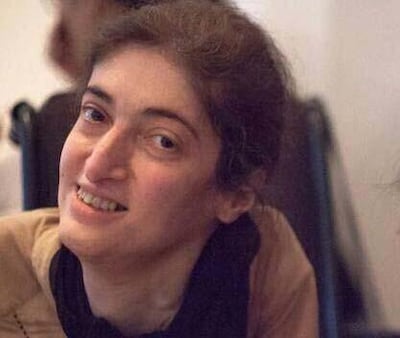
"For me, personally, and for the disabled community on the whole, the pandemic had two contrasting impacts. On the one hand, it highlighted how much we are at risk, exacerbating the idea of the 'other' – yet at the same time, I think it made many of us happy at finally achieving equality of some sort in the sense everyone was stuck at home, everyone was denied, which is what we disabled people have had to endure for years. Everything became accessible, online and free.
I hope retailers and the hospitality sector will realise that being inclusive will generate income, not risk a loss of income. I hope workplaces will be more flexible in hiring disabled people and not reject them because they want to work from home."
8. Mina Liccione, comedian and co-founder of Dubomedy
"The past six months have been quite the trip, from the couch to the kitchen to the bathroom and back again.
I have never spent this much time in one place before. More than anything, my sense of humour and faith is what has got me through the toughest of days. So here are some of the things I’ve learnt over the past six months:
- To stay in touch with people. I deeply miss my loved ones and this time has reminded me to stay in touch, not just through messages and emails but video calls and old-fashioned phone calls. It has made the world a smaller place.
- Going out for coffee is overrated and overpriced. I’ve perfected the Liccione almond-vanilla latte at home.
- That people, big brands, and companies that are not really affected, will still ask artists to do stuff for them for free.
- Zoom and virtual shows can’t possibly have the same impact, energy, joy and excitement of live entertainment. Period. Live events are so important.
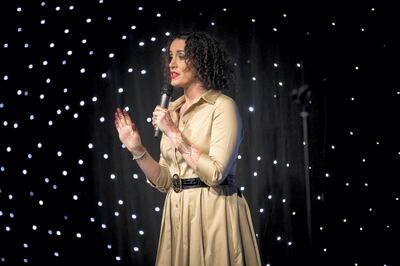
- I cherish my alone time. At least once a day, as a mum, you need to pretend you have to use the bathroom and lock the door to have a moment of silence. Alone time to focus, breathe, or watch a silly video is very important.
- I can survive without leaving the house for weeks!
- Shoes are overrated.
- Even during a pandemic, I still don’t want to work out.
- Those face-to-face meetings really could have been emails."
9. Salama Khalfan, jewellery designer
"I’ve learnt things about myself that I didn’t know before, and about my reactions to external factors that I cannot control. It has been insightful in terms of learning how to adapt and being reminded what it's like to live a slower-paced life. That used to be something I felt I was only able to achieve when I went away on holiday and worked remotely.
I now realise this is also achievable here, from the comfort of my own home in Dubai. I never associated my home here with working slower and taking life slower and enjoying more of my day."
10. Natasha Sideris, restaurateur and founder of Tashas cafes
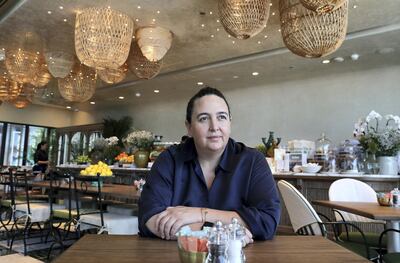
“It has been a time of change. During this pause that has seen the world stop like never before, we have had a chance to reflect, re-evaluate and refresh what we stand for ...
I feel that gone are the days of abundance for abundance's sake. It’s time to simplify and focus on what matters most, as well as be mindful of our environment and our impact on this fragile planet.
Lastly and perhaps most importantly, I now really understand how important restaurants are to the fabric of our society and to our social well-being. It is something we have taken for granted for so long.”
11. Shelley Frost, musician and founder of Dubai music events company The Fridge
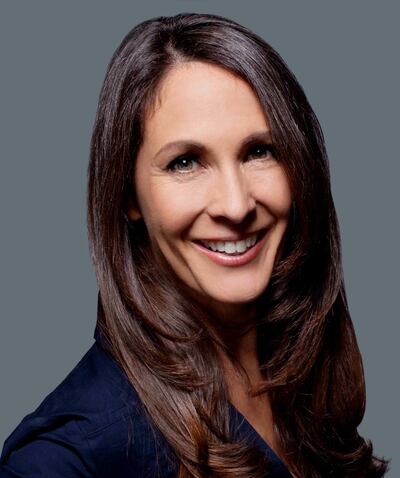
"The six months have been decimating. It was like running into a brick wall. Everything has stopped and it felt like each day we were entering completely foreign territory.
As an organisation we had to adapt. We really picked up skills when it comes to live streaming as well as broadcasting.
The most challenging aspect, personally, has been on the mental side of it. I never felt so challenged when it comes to being motivated. That’s not only because everything you have known has been suddenly taken away from you, but you can’t prepare for a new normal because you don’t even know what that is. It is hard to know what the end point is because the target keeps changing.
But on the other side, the slower pace of life has been beautiful. The key takeaway from this experience for me is that strength lies within, but at the same time, I stand with the ‘together we are stronger’ message. This experience has proven that, really, all we have is each other."
12. Mel Stones, founder of Animal Action UAE
"I learnt that we have so many more animal lovers who would love to take in a pet on a temporary or permanent basis, only that while working full time (pre-Covid) they felt unable to. In the past few months, many people were asked to work from home or were put on early leave. This meant we suddenly received a wave of foster offers, which normally would be very difficult to find. In fact, we were sharing foster offers between the groups so that they wouldn’t go to waste, which is unheard of. We managed to get all of our dogs and cats – even those that had been waiting in kennels for almost two years – into foster homes."
13. Jay Wud, musician and producer
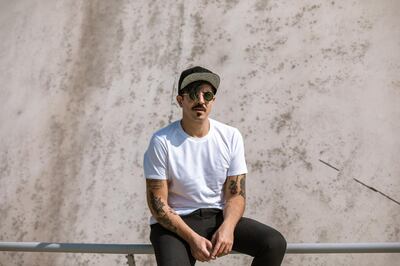
"Finding a new routine and getting over the anxiety was quite difficult. What made me find my balance again was music. I kept myself busy every day working on my material.
I also started doing weekly live streaming on my Twitch channel and using that to give tutorials or hang out with other people.
I wanted to actually do something like this for a while, and in a way, Covid gave me that push that I needed to really start doing that.
What has also helped me has been fitness. During that first month I was a couch potato. It got to a stage where I said 'hell no' and I had to make some changes. So I started training again with my personal trainer on Zoom. That has kept me in check when it comes to my mental health.
It all made me realise that there is a difference between filling your time and wasting your time. At a time like this, we can be lazy and forgetful, and push things to the next day. But if you have a schedule, have some focus and are passionate about what you are doing, you will realise there are lots of things you can do."
14. Prince Khaled bin Alwaleed bin Talal Al Saud
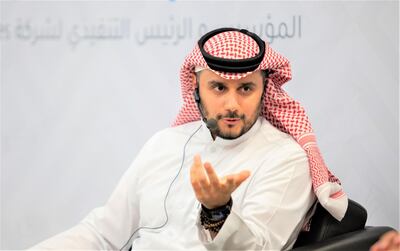
“From a purely opinion-based standpoint, the pandemic certainly helped to spotlight things like zoonotic diseases and how environmental degradation plays a role in unleashing things like Covid-19.
I hope there will indeed be a lasting positive impact on the way people view traditional meats versus plant-based meats, but sadly people have short memories and often choose to ignore what is basic science: like the climate crisis.
All of these factors played a role in landing us where we are today, yet we still have people who deny any links. Product purchasing patterns for alternative proteins and plant-based meats have clearly improved, and I see this as a direct result of the pandemic increasing education on health and the many pitfalls of traditional animal agriculture. I’d love plant-based meats to continue climbing sales-wise, and not just because I am an investor. I want people to consider the environmental benefits, and hopefully remember that this is all preventable to some degree.”
15. Abdallah Al Shami, partner at film company Mad Solutions and director of the Arab Cinema Centre
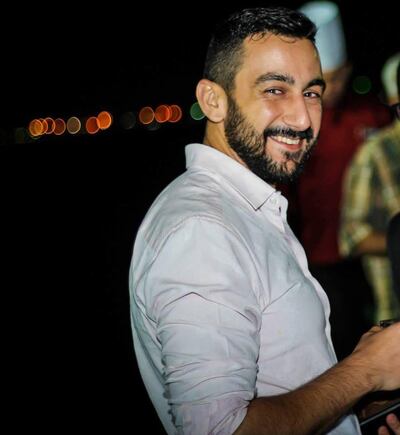
“With the lockdown, I found myself forced to book a flight to Lebanon, where I've been living for the past three months, the longest period I've ever lived in my home country. This forced residency has allowed me to rediscover my country and my people, during its most dire of circumstances.
But the beauty of the experience has allowed me to witness, first-hand, the resilience and resourcefulness of the Lebanese people, specifically of my home town, Tripoli. They are withstanding and weathering economic, political and health crises.”
16. Sonu Shivdasani, hotelier, chief executive and co-founder of Soneva resorts in the Maldives and Thailand
“Lao Tzu once said, ‘Good fortune has its roots in disaster.’ Over the years, this saying has taken on more and more meaning for me, during which time I learnt that any crises that may come to pass are chances to learn, grow and develop.
We might have no control over the hand that we are dealt, but we have total control on how we play it. I realised that if we look at a crisis in a positive light, we can always find opportunities to learn and develop, and further enrich our lives.
Due to this crisis, the culture of travel will change. Business trips will only happen if they are essential, as we have all seen that meetings can happen remotely in most circumstances. Guests will want to have more meaningful holidays and stay longer."
17. Nick Watson, founder of Team Angel Wolf

"The past six months has been quite a journey for us, as it has for a majority of the world. It has definitely been a time of great worry and concern, but it has also been positive: learning to slow down, self-reflect and readdress life.
We have re-learnt patience, empathy and gratitude on a different level. We have learnt acceptance that it is OK when plans don’t go as originally dreamed. We have had to remember how to be willing to ‘let go’, adapt and reinvent, but, not lose sight and belief in the foundation of our mission/goals/morals. We have learnt that there is no shame in asking for help.
They will read in history books about how the whole world went into lockdown, about everything closing, people staying home, death, survival, etc, but I would like to remember the beauty and importance of slowing down, going within, reflecting and reprioritising. I'd like to remember families reconnecting and spending quality time together, people becoming aware of the importance of their health, communities helping each other, and the bravery of so many.
There is a beauty in this gift that’s been given to us, creating togetherness, although apart.
I hope we have all learnt from this time; that it has been a lesson for the world to not go back to our old, negative ways … it's been a unique opportunity to start again and leave the world in a better state for the next generation to inherit."
18. Luz Salem Villamil, deputy director, Cinema Akil
“As we’ve seen our audiences safely return to the cinema for the past three weeks, it has restored our confidence in the communal spirit that makes this space. We are glad to see audiences reconnecting and being transported again to stories of joys and sorrows, through the magic of film – even if we have to sit two metres apart.”
19. Mays Albaik, an interdisciplinary artist with an exhibition coming to Tashkeel:
“The pandemic has forced me to figure out how to think about my practice actively during a transitional phase. Artists always have to be very agile in how they think about their practices. I’m still trying to figure it out. I’ve had to somehow still ensure an output but completely change my process. It has resulted in some really interesting detours in what I’m thinking about, in the way my work relates to the space it’s being made in.
These days, I’m spending a lot of the time working on a screen. So the work itself has to be agile. But at the same time, the situation has presented a lot of novel opportunities. I’m having studio visits with people who live in London or other parts of the world, which is kind of fantastic.”
20. Nada El Barshoumi, author and recipe creator at One Arab Vegan

"Personally, one of the biggest things I’ve taken away from the current situation is that we need to further push corporations, governments and policymakers to be more accountable and responsible for climate change prevention.
While I most certainly don’t believe that a deadly pandemic is the solution that our planet needs to 'heal', I do think this virus has shown us that there is scope for radical change to our everyday lives and therefore the international economy. A world in which people commute less, do away with frivolous purchases and consume primarily to meet their basic needs is one that would undoubtedly result in a safer and more sustainable planet."
